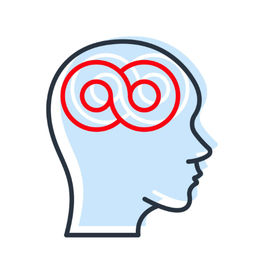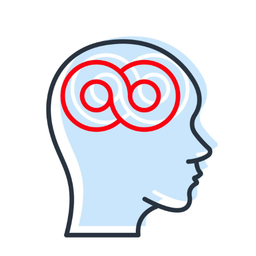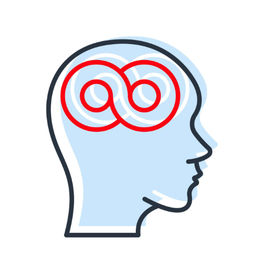The Ugly Truth About Covert Narcissists: 30 Facts That Will Shock You
Covert narcissism is like carbon monoxide: colorless, scentless, yet suffocating. While grandiose narcissists demand the spotlight, their covert counterparts weaponize shadows. They wrap entitlement in tattered humility, cloak manipulation in fragility, and disguise control as helplessness.
They whisper, “I’m such a failure”—not to be vulnerable, but to harvest your reassurance. They tremble at imagined slights—only to transform your sympathy into power. By the time you notice your chest tightening, you’ve become their life-support machine.
What follows are 30 research-based insights that expose the hidden machinery beneath their self-pity. Think of this as a forensic X-ray, showing how “weakness” becomes their sharpest blade.
Read carefully, but read bravely. Awareness is not just knowledge; it is liberation.
30 Shocking Facts About Covert Narcissists
1. The “Inverse Grandiosity” Trap
False humility becomes manipulation. “I’m a mess” isn’t vulnerability—it’s a fishing line for endless reassurance.
2. Victimhood as Ultimate Control
They rewrite every story so they’re the wronged one—dodging accountability while binding you with guilt.
3. Stealth Entitlement
Suffering becomes currency. Their pain is a passport to your patience, resources, and sacrifice.
4. Emotional Vampirism
Instead of dramatic explosions, they drain you through endless therapy-like conversations. You pour, they absorb.
5. Strategic Helplessness
They “can’t” do basic tasks, forcing you into the parent role—while denying responsibility.
6. Micro-Expressions of Contempt
A flash of disgust at your joy. A sneer disguised as a smile. Their envy leaks through the face.
7. Conditioning Through Inefficiency
They “forget” tasks or do them badly—training you to expect less, while quietly controlling more.
8. The Bait-and-Pity Cycle
They provoke, then play victim when you react. You’re punished for noticing the abuse.
9. Confession as Disarmament
“I know I’m toxic.” These aren’t admissions; they’re shields against consequences.
10. Addiction to Resentment
Their brains literally light up more with pity than with praise. Grievances become their drug.
How to Keep Your Love Alive - New!
How to Make Adult Friends - New!
Is Family Loyalty Vanishing? - New!
Is It Time for a New Relationship?
11. Therapy-Speak as Weaponry
They hijack psychological language—“boundaries,” “triggers”—to silence criticism and maintain control.
12. Panic at Others’ Joy
Your happiness feels like their failure. They can’t celebrate without collapsing inside.
13. Neurochemical Reward of Pity
MRI scans show pity excites them more than admiration. Dysfunction is addictive.
14. Nonverbal Helplessness Cues
Sighs, slumped shoulders, defeated faces—all designed to make you rescue them.
15. Invisible Ledgers of Debt
They track every kindness you give—yet any request from you is “selfish.”
16. Soul Gaslighting
They don’t deny events—they deny your right to feel. “You’re overreacting.”
17. Hijacking Crises
Your trauma becomes their stage. “You lost your job? Imagine how I feel.”
18. Sabotage of Intimacy
When closeness gets real, they pull away—through silence, fights, or drama.
19. Inferiority Projection
Their criticism of you is just recycled self-hatred, hurled outward.
20. Identity Theft
They steal your hobbies, passions, even quirks—then claim them as their own.

21. Grief Mimicry
Your loss becomes their performance. They out-grieve you, for attention.
22. The Forgiveness Racket
They demand instant absolution for their wrongs but archive yours forever.
23. Stealth Triangulation
They cozy up to your enemies—keeping you insecure, them empowered.
24. Suicidal Theater
Gestures of self-harm often serve as emotional blackmail, not healing.
25. The Discard Mirage
If you leave, they rewrite history: “I was going to leave anyway.”
26. Predatory Targeting
They instinctively seek out empaths and the traumatized—people least likely to walk away.
27. Therapy Resistance
They love talking about trauma—but quit when real change is required.
28. The Spiritual Bypass
Sudden “enlightenment” or activism isn’t growth—it’s a new superiority costume.
29. Neuroplasticity Damage
Their brains, wired by chronic victimhood, resist change more than most personality types.
30. The Hardest Truth
You cannot love them into healing. Your compassion fuels their cycle. Only boundaries, consequences, and professional help work.
Seeing Clearly, Walking Away
Covert narcissism isn’t shyness. It’s a predatory system disguised as fragility. Suffering becomes a weapon. Empathy becomes a leash.
For therapists: Stop coddling. Reward responsibility, not rumination.
For partners: Leaving isn’t cruelty—it’s surgery.
For covert narcissists: Healing begins only when you admit that weakness is your chosen power.
There is no quick cure. Neurochemical addictions, scarred neural pathways, and a love of victimhood make change hard. But the first brick in the road is truth, and you now hold it.
Surviving covert narcissism isn’t about winning their twisted game. It’s about stepping off the board entirely, choosing freedom over fatigue.
Be careful with your empathy. Protect it. Aim it where it grows you. And remember—clarity is the first act of liberation.









